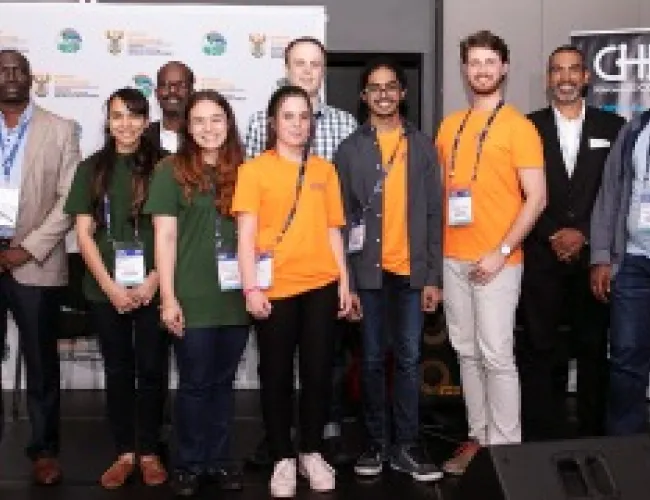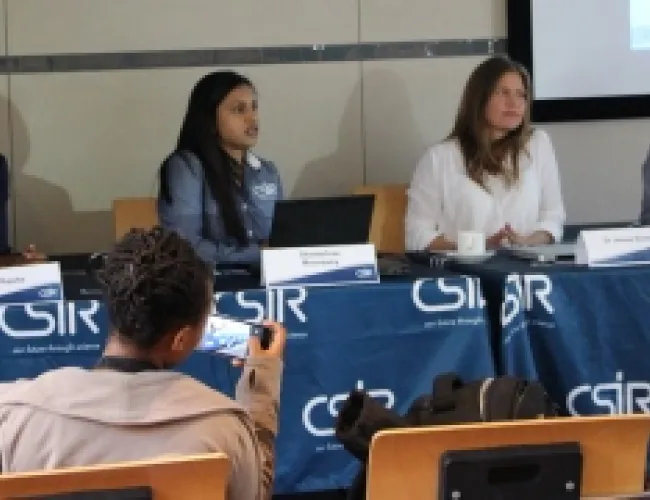
Renewables assisted SA to avoid stage 5 and 6 load shedding
The Council for Scientific and Industrial Research (CSIR) have found that renewable energy assisted in relieving pressure on the constrained South African…
View More
Alien plants threaten to use up half of the inflows into two important dams in SA
Up to 50% of the annual inflows into the Western Cape’s Berg River Dam catchment and Limpopo’s De Hoop Dam catchment could be used up by alien plants over a…
View More
South Africans can take control of their household electricity usage and save money at the same time - CSIR Energy experts
South Africans have been urged to become more energy efficient, change their behaviour and make use of complementary energy sources, as South Africa…
View More
CSIR launches new online platform for information-sharing on human settlement development
The Council for Scientific and Industrial Research (CSIR), in partnership with the Departments of Science and Technology and Human Settlements, launched the…
View More
Gauteng residents urged to take part in transport perception survey
The residents of Gauteng have been urged to participate in and cooperate with the fieldworkers who are conducting a transport survey. About 37 000 households…
View More
CSIR embraces 4IR at Scifest Africa
Council for Scientific and Industrial Research (CSIR) researchers will be using this year’s annual national science festival, Scifest Africa in Makhanda, to…
View More
CSIR unveils novel online climate risk profiling and adaptation tool
The Council for Scientific and Industrial Research (CSIR) has launched a state-of-the-art online climate risk profiling and adaptation tool to assist…
View More
Exhibition on 4th Industrial Revolution opened in Parliament
The Department of Science and Technology (DST) has partnered with Parliament to produce an exhibition demonstrating South Africa's readiness to embrace the 4th…
View More
Finding the missing regulatory links of the innate immune system
Nature Genetics publishes the findings of South African and international scientists on how immune genes are regulated In a groundbreaking study published in…
View More
Students to fly SA flag high at supercomputing competition in Germany
The annual Centre for High Performance Computing (CHPC) conference, which took place in Cape Town recently, provided a platform for South African students to…
View More
CSIR student researcher reaches for the stars
Keolebogile (Lebo) Sebogodi is one of the Council for Scientific and Industrial Research (CSIR) researchers who are making inroads into the challenge of…
View More
New rock drill set to disrupt the mining industry
Three concept designs for a new rock drill that is set to disrupt the mining industry were revealed at the Mandela Mining Precinct (MMP) on 25 October 2018.…
View More
CSIR and SANSA join forces to support industrial development in space science
The Council for Scientific and Industrial Research (CSIR) and the South African National Space Agency (SANSA) will continue to work together in fostering…
View More
Modernising mining through partnerships and transformation
Mining is a critical industry for South Africa as the country works towards the achievement of the National Development Plan (NDP), which aims to eliminate…
View More
Smart Trucks: Cost reduction all-round while maintaining competitive advantage
The Council for Scientific and Industrial Research (CSIR) has commissioned five more Performance-Based Standards (PBS) trucks (Smart Trucks) to AB InBev, as…
View More
CSIR female researchers at the forefront of improving health care in SA
Currently, most patients who are diagnosed with diabetes in South Africa have to prick their fingers three times a day to check their sugar levels. This method…
View More